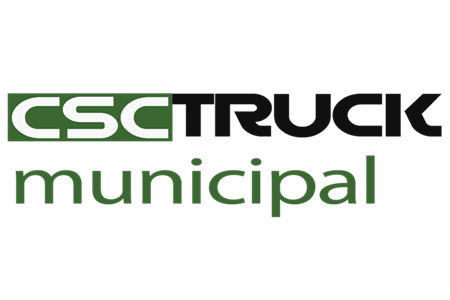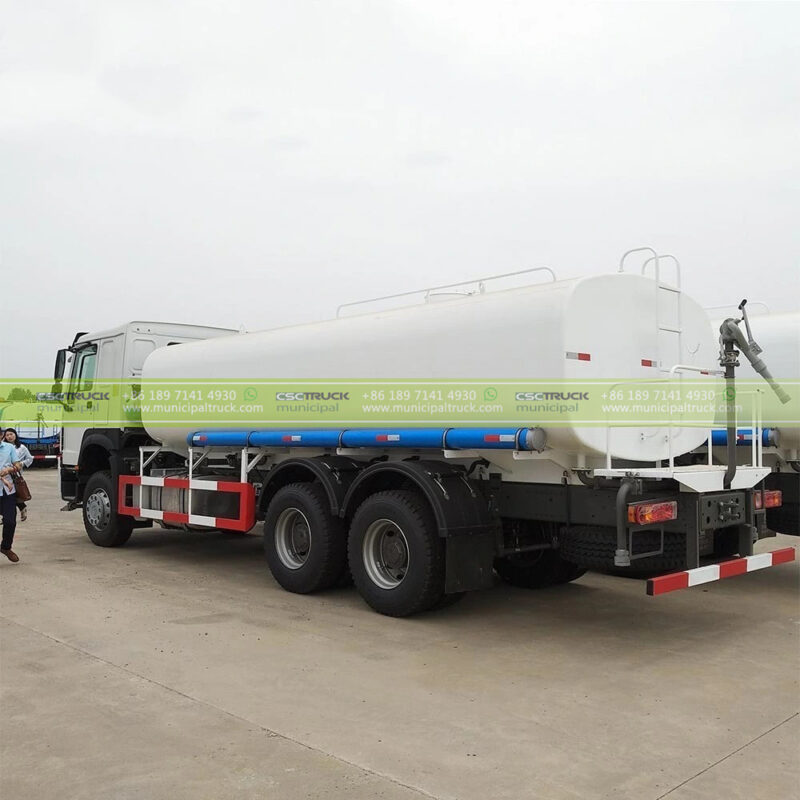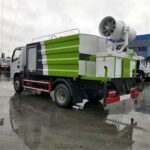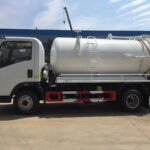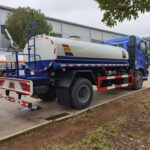Water sprinkler trucks are essential vehicles that play a crucial role in various industries, particularly in construction and agriculture, where they serve multiple functions that contribute to efficiency, productivity, and sustainability. These specialized trucks are equipped with advanced irrigation systems that can disperse water evenly over large areas, making them indispensable for tasks such as dust control, soil stabilization, crop irrigation, and more. This article delves into the vital functions of water sprinkler trucks in both construction and agricultural sectors, highlighting their design features, operational benefits, and the impact they have on enhancing productivity.
The Role of Water Sprinkler Trucks in Construction
Dust Control and Site Safety
One of the primary functions of water sprinkler trucks in construction is dust control, which is a significant concern on construction sites, especially in dry and windy conditions. Dust can pose serious health risks to workers and surrounding communities, as it contributes to respiratory problems and decreases air quality. Water sprinkler trucks effectively mitigate this issue by applying a fine mist of water over construction areas, thereby suppressing dust particles and maintaining a safer working environment. This proactive approach not only protects the health of workers but also reduces the likelihood of fines or penalties from regulatory bodies due to dust pollution.
Soil Compaction and Stabilization
In addition to controlling dust, water sprinkler trucks are instrumental in soil compaction and stabilization. During the construction process, especially in the preparation of foundations and roadways, it is crucial to achieve optimal soil moisture content to ensure that the ground is adequately compacted. Water sprinkler trucks can deliver precise amounts of water to achieve the ideal moisture levels, enhancing the effectiveness of compaction equipment and ultimately leading to a stronger, more stable foundation. This targeted moisture application is critical in preventing issues such as soil erosion and settling, which can compromise the integrity of the constructed structures.
Erosion Control
Construction sites are often prone to erosion, particularly during heavy rains, which can wash away soil and sediment. Water sprinkler trucks help combat this by maintaining adequate soil moisture levels, which stabilizes the soil and reduces the risk of erosion. By strategically watering areas that are susceptible to runoff, these trucks help to preserve the integrity of the site, ensuring that the construction process can continue smoothly without significant delays or damage due to erosion.
The Importance of Water Sprinkler Trucks in Agriculture
Efficient Crop Irrigation
In agriculture, water sprinkler trucks are vital for efficient crop irrigation, particularly in areas where traditional irrigation systems may not be feasible. These trucks are equipped with powerful pumps and sprinkler systems that can deliver water directly to the fields, ensuring that crops receive the necessary moisture for optimal growth. This method of irrigation is especially beneficial in arid regions or during periods of drought, where water resources may be limited. By employing water sprinkler trucks, farmers can effectively manage their water resources, maximizing crop yields while minimizing waste.
Fertilizer and Pesticide Application
Beyond just irrigation, water sprinkler trucks are also utilized for the application of fertilizers and pesticides, further enhancing agricultural productivity. By mixing fertilizers or pesticides with water, farmers can efficiently distribute these essential substances over large areas, ensuring that crops receive the nutrients they need for healthy growth. This dual functionality of water sprinkler trucks not only saves time and labor costs but also reduces the environmental impact associated with traditional methods of application, as the precise control offered by these trucks minimizes runoff and ensures that the chemicals are delivered directly to the crops.
Soil Health and Conservation
Maintaining soil health is critical in agriculture, and water sprinkler trucks contribute to this by promoting proper moisture levels in the soil. Adequate moisture helps to support beneficial microbial activity and prevents the soil from becoming too compacted or dry. By regularly applying water through sprinkler systems, farmers can improve soil structure and fertility, ultimately leading to healthier crops and better yields. Additionally, maintaining moisture levels can help reduce the need for excessive tillage, which can degrade soil quality over time.
Technological Advancements in Water Sprinkler Trucks
Precision Water Delivery Systems
Modern water sprinkler trucks(also called sprayer trucks) are equipped with advanced precision water delivery systems that allow operators to control the amount of water dispensed with remarkable accuracy. This technology ensures that water is applied evenly across the designated area, minimizing waste and maximizing effectiveness. These systems often include features such as adjustable spray patterns and flow rates, enabling operators to tailor the irrigation process to specific crop requirements or site conditions. By utilizing precision delivery, farmers and construction managers can optimize their water usage, leading to both economic and environmental benefits.
Automation and Remote Control
Another significant advancement in water sprinkler truck technology is the integration of automation and remote control capabilities. Many modern trucks are designed to be operated remotely, allowing for greater flexibility and efficiency in managing watering tasks. Operators can program the trucks to perform specific watering schedules, adjusting flow rates and coverage areas based on real-time conditions. This level of automation not only saves time but also reduces labor costs, allowing operators to focus on other critical tasks while the truck manages irrigation and dust control autonomously.
GPS and Fleet Management Systems
Incorporating GPS and fleet management systems into water sprinkler trucks has revolutionized the way these vehicles are utilized in both construction and agriculture. These systems allow for real-time tracking of water usage, vehicle locations, and operational efficiency, enabling managers to optimize resource allocation and monitor performance. By analyzing data collected from these systems, organizations can make informed decisions regarding maintenance schedules, water usage efficiency, and route planning, ultimately enhancing overall productivity and reducing costs.
Environmental Considerations
Sustainable Water Management
Water sprinkler trucks play a vital role in promoting sustainable water management practices, particularly in areas where water resources are scarce. By utilizing efficient irrigation techniques and precise water delivery systems, these trucks help minimize water waste and promote responsible usage of this precious resource. Implementing sustainable water management practices not only benefits the environment but also contributes to long-term economic viability for farmers and construction companies alike.
Reduced Soil Erosion and Runoff
Proper use of water sprinkler trucks can also lead to reduced soil erosion and runoff, as they help maintain optimal moisture levels in the soil. By preventing excessive runoff during heavy rains, these trucks contribute to soil conservation and protect local water sources from contamination. This environmentally responsible approach aligns with modern sustainability initiatives, ensuring that agricultural and construction practices do not negatively impact the surrounding ecosystem.
Operational Benefits of Water Sprinkler Trucks
Cost-Effectiveness
Investing in water sprinkler trucks can lead to significant cost savings for both construction and agricultural operations. By improving water efficiency and reducing labor requirements, these trucks help organizations lower their operational costs while enhancing productivity. Furthermore, the ability to automate watering tasks minimizes the need for manual labor, allowing teams to focus their efforts on other critical areas of their projects.
Versatility and Multi-Functionality
Water sprinkler trucks are inherently versatile, as they can serve multiple functions beyond irrigation. In construction, they can be utilized for dust control, soil stabilization, and erosion prevention, while in agriculture, they facilitate efficient watering and nutrient application. This multi-functionality makes them valuable assets in various operational contexts, allowing organizations to streamline their processes and maximize their investment.
Enhanced Productivity
The integration of advanced technology and precision watering capabilities allows water sprinkler trucks to significantly enhance productivity in both construction and agriculture. By providing targeted watering solutions and minimizing downtime, these trucks enable workers to complete tasks more efficiently and effectively. The time saved through automation and precise delivery translates into increased output, helping organizations meet their project goals and agricultural demands more readily.
Conclusion
Water sprinkler trucks are indispensable tools in construction and agriculture, serving a variety of essential functions that promote efficiency, safety, and sustainability. Their innovative design features, technological advancements, and operational benefits make them crucial for modern industry practices. As the demand for effective resource management and environmental stewardship continues to grow, water sprinkler trucks will undoubtedly remain vital assets in ensuring successful outcomes in both construction and agricultural endeavors.
